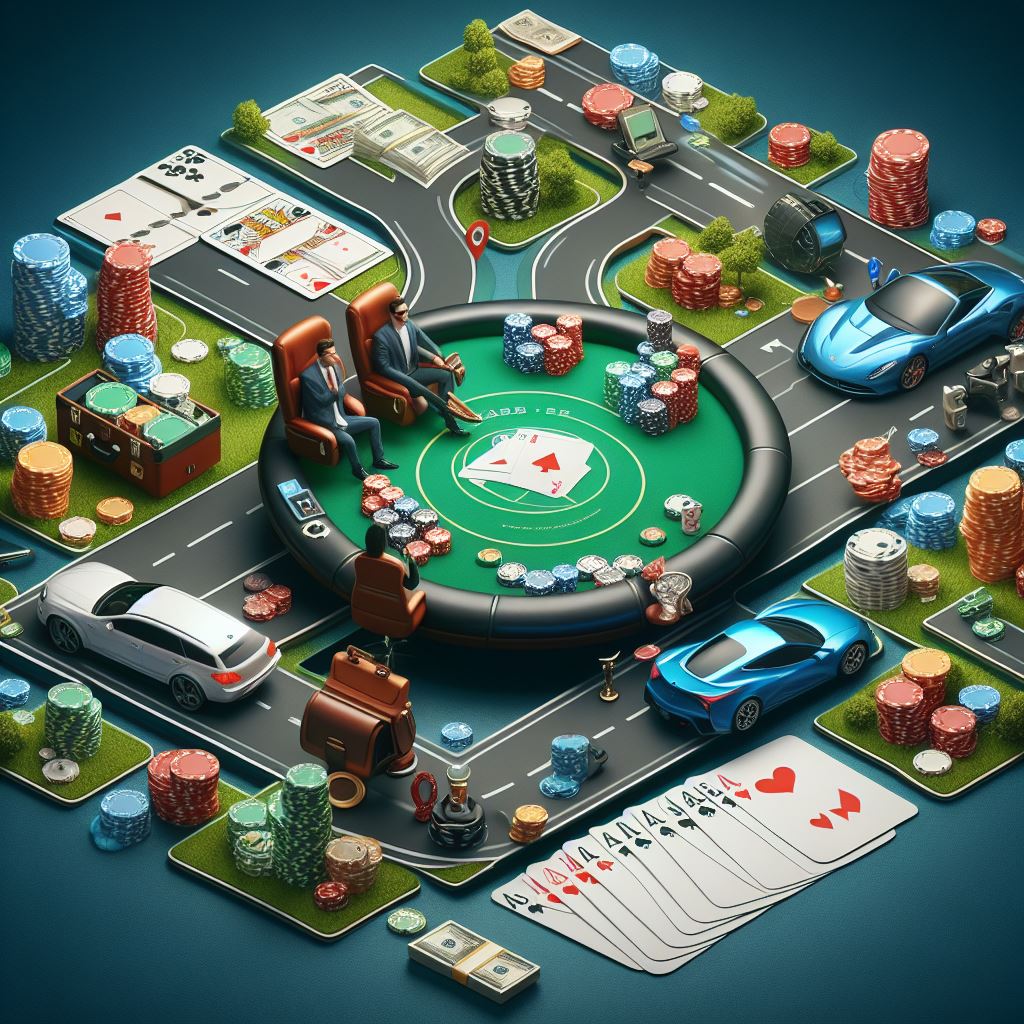Poker tournaments are a thrilling aspect of the casino experience, offering players a chance to compete for substantial prize pools with a relatively small investment compared to cash games. Understanding the structure and strategies specific to tournament play can greatly enhance your chances of performing well and potentially winning big. This article serves as a comprehensive guide to navigating poker tournaments, from understanding their format to adopting winning strategies.
Understanding Poker Tournament Formats
Poker tournaments vary widely in format, but most share a common structure:
Freezeout Tournaments: The most traditional format, where you buy in once and play until you either lose all your chips or win the tournament. There is no option to buy back in after you are eliminated.
Rebuy Tournaments: These allow players to buy additional chips if they run out during a specified period at the beginning of the tournament. After the rebuy period ends, the tournament becomes a freezeout.
Satellite Tournaments: Smaller tournaments that offer the winners entry into larger, more expensive tournaments rather than a cash prize.
Guaranteed Prize Pool Tournaments: These events guarantee a minimum prize pool regardless of the number of entrants. They are particularly attractive when the buy-ins do not cover the guaranteed amount, creating what is known as an “overlay”.
Sit and Go Tournaments: These begin when a specific number of players have registered. They are usually faster and involve fewer players than scheduled tournaments.
Key Phases of a Poker Tournament
- Early Stage: During the early stages of a tournament, the blinds are low relative to the chip stacks, giving players the flexibility to play a wider range of hands. It’s advisable to play conservatively and observe the tendencies of your opponents.
- Middle Stage: As blinds increase, players must become more aggressive to stay ahead of the blind curve. This is the time to leverage a solid table image and start building a larger chip stack by exploiting weaker or more passive players.
- Late Stage: When approaching the money bubble (the point at which the next player out will leave with nothing, while the rest will win some money), playing style should adjust based on stack size and position. Short stacks need to take more risks, while large stacks can pressure opponents who are trying to squeak into the money.
- Final Table: The dynamics change significantly at the final table. Payouts are top-heavy, often with big jumps between places, so strategic aggression and well-timed bluffs become crucial.
Strategies for Tournament Success
Adjust to Changing Dynamics: Unlike cash games, tournament poker requires adjustments to the increasing blinds and changing dynamics of your table. Flexibility and the ability to read the table are crucial.
Manage Your Stack: Stack management is more critical in tournaments than in any other form of poker. Always be aware of how your stack compares not just to the blinds but also to the average stack and the stacks of your table mates.
Focus on Survival and Accumulation: Early on, your focus should be on accumulating chips while maintaining enough of a buffer to avoid becoming desperate. Later, survival becomes more important as the rewards for moving up in finish position increase.
Play the Player, Not Just the Cards: Hand values fluctuate more in tournaments than in cash games due to the pressure of increasing blinds. Often, the situation and the player dynamics dictate your moves more than the actual strength of your cards.
Psychological Aspects
Tournament poker also tests your mental endurance and emotional control. The ability to maintain focus, manage stress, and handle the inevitable swings is essential. Stay patient, stay disciplined, and keep your emotions in check to make optimal decisions throughout the event.
Conclusion
Poker tournaments require a blend of strategic play, psychological insight, and timely aggression. By understanding the structure of tournaments and adapting your strategy through each phase, you significantly enhance your chances of not just surviving but thriving in the competitive arena of tournament poker. Whether you’re aiming for a big score in a local casino event or dreaming of a major tournament victory, the roadmap outlined here can help you achieve your poker goals.



